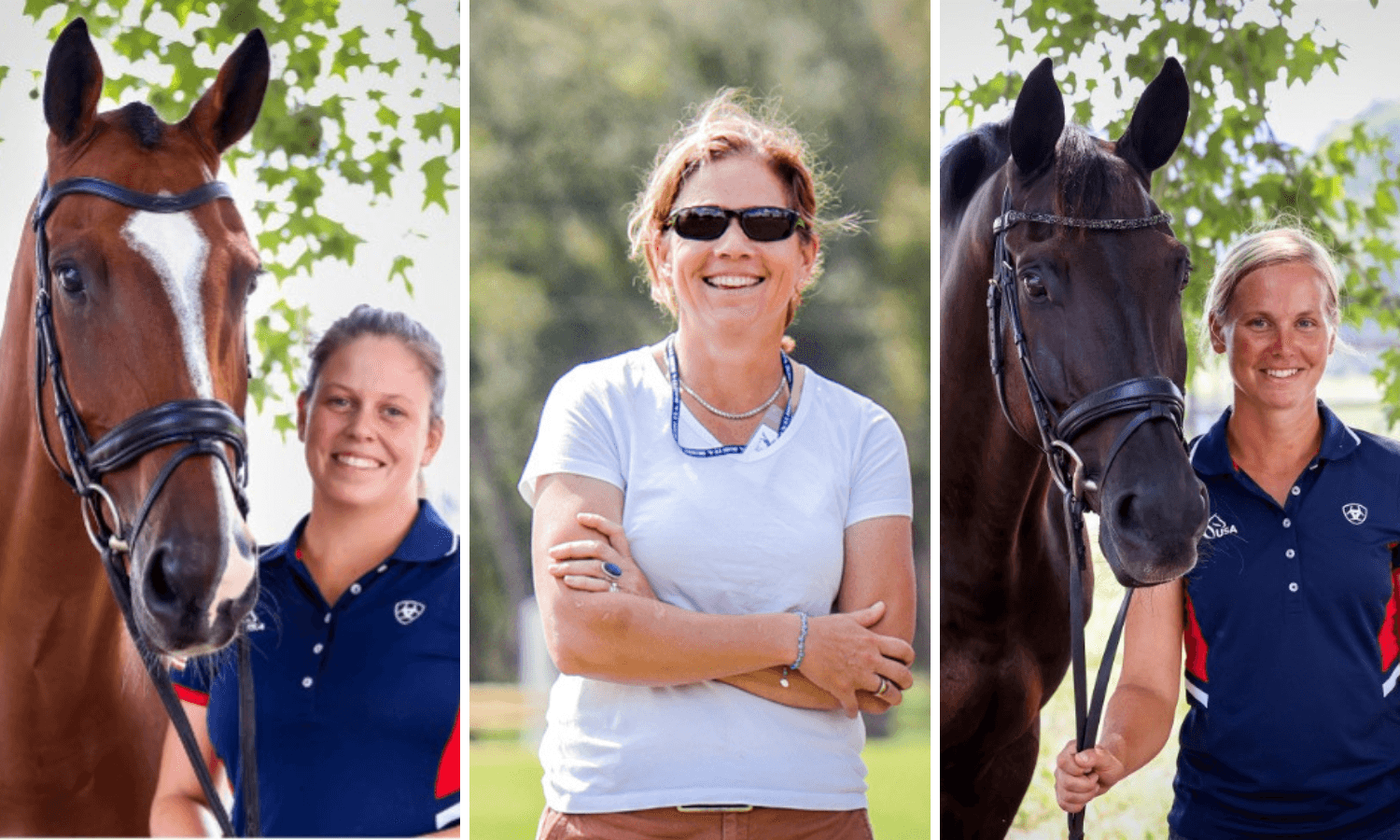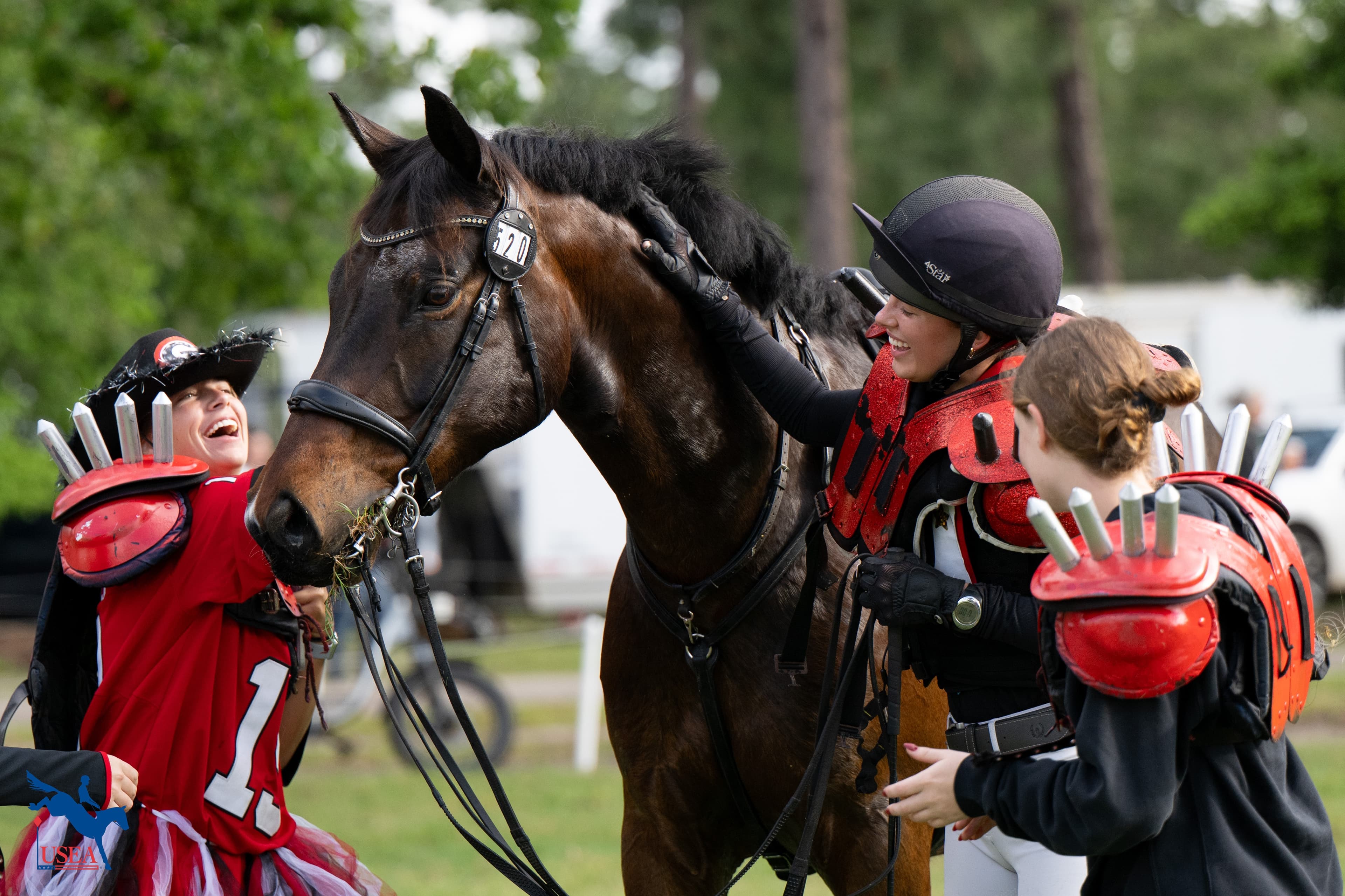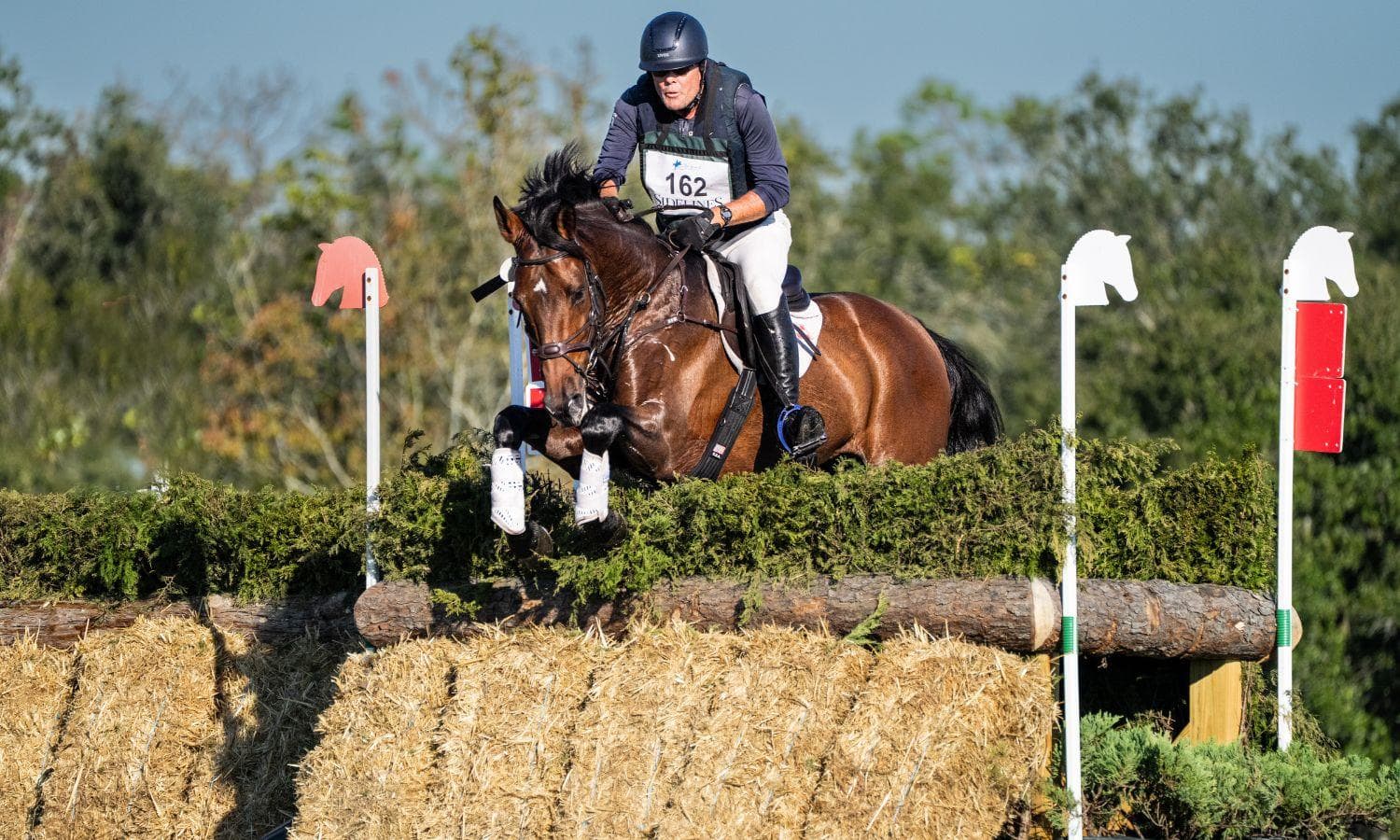Top Grooms Share All in Adult Rider Open Forum Groom's Panel at 2022 USEA Annual Meeting & Convention

An interesting addition to the Adult Rider Open Forum that took place during the 2022 USEA Annual Meeting & Convention was the Grooms panel featuring some of the grooms from the 2022 Eventing World Championships. Former USEA President and professional groom Max Corcoran sat down alongside Stephanie Simpson, groom for Boyd Martin, and Hailey Burlock, groom for Will Coleman, to chat about all things related to grooming.
On getting their start in the profession:
Corcoran: “My main reason for becoming a groom for starters was that I couldn't afford to have my own horse or take lessons. I grew up at a foxhunting barn, so the only way I actually got to go and hunt was that I had to get up and tack all of the horses up for everyone. As I started competing at the Novice and Training level, I realized financially that it was never going to work to be a top rider, but I loved being around them and I wanted to got to the Olympics and World Championships. I wanted to make sure my horses were as good as they could be and make it so my riders were as good as they could be because their horses were so good. That took me 30 years. I've gotten to travel around the world while looking after horses. I've been to three Olympics and four World Championships looking after the horses and being there with and for them. I've seen the world and made come incredible friends. All of the grooms in this country are like a family. We spend a lot of hours together tired and they are the first person we want to turn to.”
Burlock: "Similar to Max, the only way I was going to be in high performance was looking after the horses. I was competing at the Training level and had some great people supporting me, but to do it at this level I had to groom. The places you're able to go and the things you're able to do watching the horses is great."
Simpson: “I actually started as a working student which evolved into me being a groom, barn manager, working student, whatever! Through different people, I worked my way up, and I've been with Boyd for five years. It's all about the people you meet. I still compete and have done a handful of events at Preliminary. I have a young horse that I'm very slowly bringing up. I am away traveling a lot but I still like riding and competing. It's an addiction, full blown."
On the travel associated with Pratoni:
Corcoran: "On the way home, the horses had two days to Belgium, two days of quarantine, and two days once back in the states. So all-in, they had seven days of travel before they were back in their stalls. Only one groom and the vet can be on the plane with the horses so we had to prepare the horses so much before they sent them off. Even within the same program, they are all so different. The grooms know the horses so well that they will notice even if they didn't eat this bit of grain, they drink less water, or they don't eat their hay. It's a lot for the grooms to just put the horses on the trailer and say, ‘peace out see you in 48 hours.’ Our Vet had an immense amount to do on the flight over. When they land, the horses are the first off the flight, but the equipment wasn’t off the plane until six hours and then they had the remaining six hours on the trailer. The horses got there at midnight and the equipment didn't get off until 5:00 a.m. After 12 hours, the horses can get something called travel sickness where the fluids settle in their lungs and they start getting sick. Luckily the U.S. horses got to go to a stall to wait for the equipment so they could put their noses down and drain the fluids."
Simpson: “We always run fluids so we never get behind and have to worry about a horse getting off the plane and colicking. I really like using Gallaghers Water and electrolyte paste to help and try to get them as much fresh air as possible to try to prevent anything from happening.”
Corcoran: "Airplane travel is actually a lot nicer on the horses than road travel. Like us, the airplane is usually pretty smooth and quiet so when you go check on them they tend to be snoozing. Four days before our flight to the World Championships, pilots went on strike and our flight was delayed. The grooms will pack extra bags of grain in case the horses get stuck. Because they are usually on a cargo flight, sometimes they will have trouble getting all of the cargo on based on size, so they get delayed."
On the horses they were in charge of:
Simpson: "Mine [Tsetserleg TSF] is the worst shipper. That's on the trailer, he's quieter on the plane. He loves to kick so I have a kick mat that gets tied on the wall behind him to protect him and the horses around him."
Burlock: “Hailey: "My horse [Off the Record] is on a regiment of Ulcerguard and Succeed, which we have found out from previous local travel."
Simpson: “It is standard to have Ulcergaurd for a few days leading up to the competition, through the competition and a few days after. Horses at this level do so much travel that they don't stress about it as much."
On taking care of themselves:
Burlock: "We spend so much time taking care of the horses, that sometimes we forget to take care of ourselves. We can only take care of the horses if we are taking care of ourselves too. I'm not going to be any good to my horse if I'm starving and exhausted."
Corcoran: “"Part of my job was to make sure the grooms were taken care. I made sure they slept in a reasonable place at night, they are fed, and they have everything they need so they can be at their best so they can take care of their horses and riders. They are all like family, they pitch in to help each other whenever they need to."
On grooming necessities:
Burlock: "We have show sets that live on the trailer that get washed and put directly back on the trailer so it's one less thing we have to worry about when packing. Also a set of show brushes and a set of grooming supplies. A lot of people think the horses just look nice at the horse show, but it is really from the months of grooming leading up to the horse show. It is all of the nutrition and management in the year leading up to the event that makes them look the way they do on the day of the event. Witch Hazel is my best friend!"
On keeping their riders on schedule:
Burlock: "I try and get a plan from Will the night before about when he's going to pre-ride, when are you going to warm-up, etc. I have one board for Will with his time and then I have a whiteboard for my schedule to keep myself on track of when I need to groom, tack up, and others. At the World Championships, I left the barn with the horse and took a walk so Will didn't get on too early."
Simpson: “Boyd is very punctual. If he says he's going to ride at 8:17, he’s there at 8:17. He is a big pre-ride kind of person too. Boyd will get on and try to ride everything before their test. Don't ever wait until the last minute to throw their tack on or braid. I have it all mapped out and tick things out as we go."
On prepping a horse at the show:
Burlock: "At horse shows is not the time to reinvent the wheel and try new things. Don't be afraid to speak up to the riders if you think it is something they shouldn't do, they usually appreciate hearing your opinion."
Simpson: "Changing things or doing things they've never done before is the one thing we wish riders didn't do at a show. Like using the biggest spurs you've ever used before when your horse is off your leg is probably not the best thing to do."















